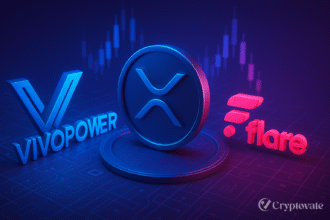– Ad –
| Getting your Trinity Audio player ready... |
Ghana is set to reshape its digital finance landscape with Ghana crypto regulation, a transformative framework slated for 2025. The Bank of Ghana is finalizing the Virtual Asset Providers Act for parliamentary review by September 2025, aiming to license and oversee cryptocurrency platforms, including exchanges and wallet providers. With 17% of Ghana’s adult population—roughly 3 million people—engaging in crypto transactions worth $3 billion from July 2023 to June 2024, this move addresses the surging adoption of Ghana digital assets 2025. Previously cautious, issuing warnings against cryptocurrencies in 2018 and 2022, the government now sees Ghana crypto regulation as a way to ensure consumer protection, curb illicit activities, and align with global financial standards. The Bank of Ghana crypto rules will establish a Digital Assets Unit to enforce compliance, positioning Ghana as a potential Ghana fintech hub in West Africa. This shift reflects a broader African trend, with countries like Nigeria and South Africa also regulating digital assets to balance innovation and security.
Economic Impacts and Regional Role
Ghana crypto regulation is poised to deliver significant economic benefits while establishing the country as a leader in Africa’s crypto ecosystem. The Virtual Asset Providers Act mandates that all crypto platforms register by August 15, 2025, enforcing strict anti-money laundering (AML) and know-your-customer (KYC) protocols to enhance transparency and reduce fraud. This move to legitimize cryptocurrency licensing in Ghana is set to enhance investor confidence, draw in foreign investment, and strengthen the country’s goal of becoming a leading fintech hub in Africa. Regulated platforms will streamline cross-border trade, crucial for Ghana’s trade-driven economy, and provide a hedge against the cedi’s volatility, which has driven crypto’s popularity as a store of value. By aligning with global standards, Ghana crypto regulation positions the country alongside Nigeria, South Africa, and Kenya, which have embraced similar frameworks. Ghana’s early focus on licensing and consumer protection could make it a West African leader in regulated digital assets, fostering blockchain innovation and financial inclusion for the unbanked through mobile-based crypto solutions.
Also Read: Kenya’s 1.5% Tax on Crypto: Shaping Fintech’s Future
Challenges and Future for Crypto Users
While Ghana crypto regulation promises growth, it faces challenges that will shape its success. Implementing the Bank of Ghana crypto rules requires significant resources to enforce compliance across a rapidly evolving sector. Unlicensed platforms may resist registration, and public education on safe crypto practices is critical to prevent scams. Balancing innovation with consumer protection will demand flexible governance to avoid stifling the Ghana fintech hub vision. For users, cryptocurrency licensing Ghana means safer, more transparent platforms but may introduce stricter verification processes. By August 15, 2025, all crypto service providers must comply, and public campaigns will promote crypto literacy to protect users. Ghana digital assets 2025 will likely see increased adoption as regulated platforms lower transaction costs and enhance reliability. Ghana’s crypto community should get ready for a regulated landscape, using these developments to fuel economic progress and position the country as a frontrunner in Africa’s digital economy.
Conclusion
Ghana crypto regulation marks a pivotal step toward financial modernization. The Virtual Asset Providers Act and Bank of Ghana crypto rules will bring oversight, security, and growth opportunities to a $3 billion crypto market. By 2025, cryptocurrency licensing Ghana could transform the country into a Ghana fintech hub, fostering innovation and economic stability. As Ghana joins African leaders in regulating digital assets, its crypto community should stay informed and engage with licensed platforms for a secure financial future.
FAQs
What is Ghana crypto regulation?
Ghana crypto regulation involves the 2025 Virtual Asset Providers Act, licensing crypto platforms to ensure transparency, security, and compliance.
When must crypto platforms register in Ghana?
All crypto service providers must register with the Bank of Ghana by August 15, 2025, under cryptocurrency licensing Ghana rules.
How will Ghana crypto regulation benefit users?
Users will enjoy safer platforms with AML and KYC compliance, though they may face stricter verification under Ghana digital assets 2025.
Why is Ghana regulating cryptocurrencies?
Ghana crypto regulation aims to protect consumers, reduce fraud, attract investment, and establish Ghana as a Ghana fintech hub.

















